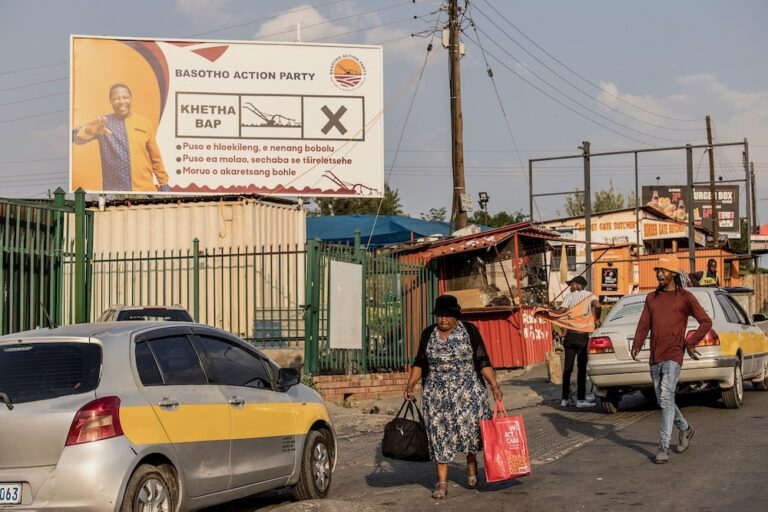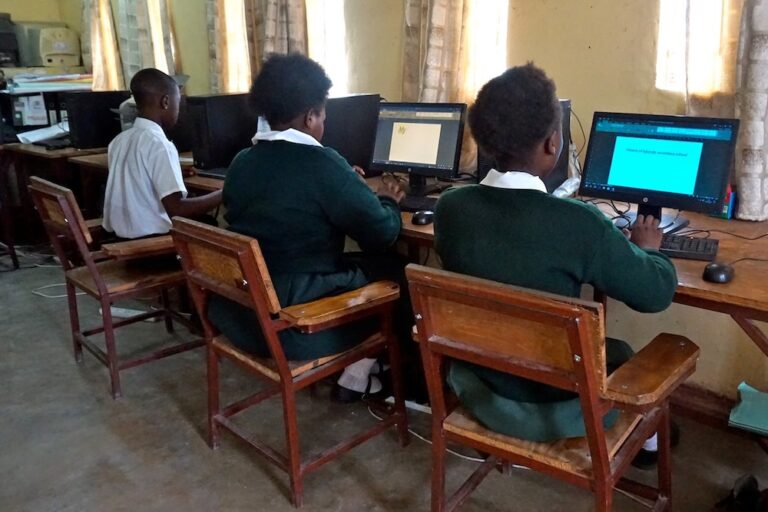**Updates IFEX alerts dated 29 and 11 April 1994** The 12 April 1996 edition of “The Post” newspaper reported that Zambia’s Supreme Court Judge, Matthew Ngulube, had thrown out an appeal by lawyers for “The Post” that President Frederick Chiluba should be “treated equally like any other citizen before the law.” On 11 April, Ngulube […]
**Updates IFEX alerts dated 29 and 11 April 1994**
The 12 April 1996 edition of “The Post” newspaper reported that
Zambia’s Supreme Court Judge, Matthew Ngulube, had thrown out an
appeal by lawyers for “The Post” that President Frederick Chiluba
should be “treated equally like any other citizen before the
law.” On 11 April, Ngulube ruled that President Chiluba was above
other citizens and “I do not see…that the President should
stand before the law equal with the rest of us….” Judge Ngulube
made the ruling according to Section 69 of the Constitution which
makes it a criminal offence to defame the President.
“The Post” editor-in-chief Fred M’membe, managing editor Bright
Mwape, special projects editor Masautso Phiri and business
Manager Goliath Mungonge are charged with libelling President
Chiluba under Section 69 of the Penal Code after the newspaper,
in March 1994, quoted a former minister as saying in court that
the President was “a twit.” In their appeal, the quartet’s
lawyers, John Sangwa and Robert Simeza, questioned the
constitutionality of the criminal charges, saying that Section 69
“does not qualify to be law.” The newspaper further quotes the
lawyers as saying that “Section 69 was overboard and vague and
that it did not describe what was insulting or not nor did it
define what was defamatory.”
For his part, Judge Ngulube argued that “there is a big
difference between legitimate criticism and other legitimate
expression and the type of expression encompassed by Section 69.”
Ngulube is further quoted as saying that the argument that
Section 69 contravened Article 23 of the Constitution “was an
attempt to reduce to the common ranks the central executive
authority and the first citizen of the country.” (Article 23
forbids “affording different treatment to different persons
attributable, wholly or mainly to their respective descriptions
by race, tribe, sex, place of origin, marital status or
creed….”) Ngulube also stated that the criminal charges laid
against the four were not in conflict with Section 20 of the
Constitution which guarantees freedom of the press and expression
in Zambia.
Mwape, however, stated that he found the ruling against them
“unfair, undemocratic and unfortunate,” adding that “People
should not be protected because of status or merely because the
case touches the president.” Mwape noted that the President is
already protected by numerous other laws and he saw no reason why
he should enjoy extra privileges. He further complained of the
court’s “inability” to fight such discrepancies in the statutes.
“Not that I am not able to defend myself. I have very solid facts
but the inability by the judiciary to stand and argue against
injustice worries me.” The trial begins on 14 May.
Appeals To


